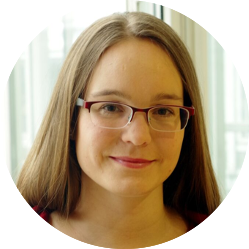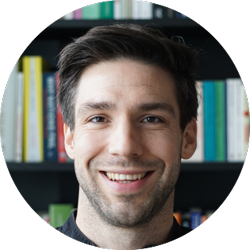On 1 January 2025, the new 4TU.AMI Strategic Research Initiative (SRI) 'Real-World-Inspired Sequential Decision-Making' was launched. The team, consisting of mathematicians from the five applied mathematics institutes in the Netherlands, envisions to create a community of researchers who will bring this field a step further. By bringing researchers with different mathematical backgrounds together, this SRI aims to advance the development of new solution methods for sequential decision-making problems. We interviewed the project leaders Janusz Meylahn and Anne Zander, both from the University of Twente.
Interview: Nicos Starreveld
First of all, congratulations on receiving funding for this SRI. Let us start with the title, could you describe what sequential decision-making entails?
 Anne: We are also very happy that our proposal was positively received by the management team of 4TU.AMI! The SRI is about sequential decision-making. This concerns situations where you have to make repeated similar decisions. Think of a hospital for example; you have to make decisions about when various operations will take place, when patients will undergo surgery or when they will be released, when doctors will be scheduled, et cetera. All these decisions are interrelated. The decisions you make today will influence your future decisions. Moreover, all these decisions have an impact on the quality of healthcare but also on how efficient a hospital works. You want to have good tools to guide you in making such decisions.
Anne: We are also very happy that our proposal was positively received by the management team of 4TU.AMI! The SRI is about sequential decision-making. This concerns situations where you have to make repeated similar decisions. Think of a hospital for example; you have to make decisions about when various operations will take place, when patients will undergo surgery or when they will be released, when doctors will be scheduled, et cetera. All these decisions are interrelated. The decisions you make today will influence your future decisions. Moreover, all these decisions have an impact on the quality of healthcare but also on how efficient a hospital works. You want to have good tools to guide you in making such decisions.
If you think of sequential decision-making in a more general context, you should think of an environment, such as the hospital in the above example, in which decisions need to be made. In this SRI, we bring together researchers who work in different fields and are motivated by various examples, like healthcare here in Twente, financial markets and pricing in Delft, agriculture in Wageningen, and control theory in Eindhoven. Our goal is to share knowledge and build new hybrid methods which can help in all these different disciplines. In Twente for example, we have strong collaborations with hospitals and health-providers.
What was the main motivation to build this team and start this SRI?
Anne: Sequential decision-making appears in many different fields and applications. What we have seen is that separate communities have grown in the various universities, each one focusing on different methods. In terms of methodologies and applications each community tends to group together, build up expertise, and develop their own techniques of solving problems. We realized that we can learn a lot if we collaborate closer together. It felt like all these different groups were building towers while lacking the bridges between them. We aim to build such bridges which will allow us to apply specialized knowledge and methods from one field in other fields. All these different mathematical methods have their own strengths and restrictions; by combining methods into hybrid methods we want to enhance their strengths and applicability!
 Janusz: As a researcher and within a local team you typically start working on a specific problem. The first thing you try is to boil it down to the most simple situation where you can apply known methods and find some first solutions. And then you start developing new techniques which work on this simple situation. Afterwards, the community starts moving forward. People start developing more sophisticated methods which can solve more complicated situations. Slowly, the community grows and gains momentum. But the team stays focussed on one methodology or one technique, for example Stochastic Differential Equations or Markov Decision Processes, which they advance more and more. With this SRI, we want to challenge ourselves and our colleagues to step out of the cubicles of their methodologies, look in the other cubicles around them, and learn what other people are working on. Because methods developed by other teams might be successfully applied to your problem.
Janusz: As a researcher and within a local team you typically start working on a specific problem. The first thing you try is to boil it down to the most simple situation where you can apply known methods and find some first solutions. And then you start developing new techniques which work on this simple situation. Afterwards, the community starts moving forward. People start developing more sophisticated methods which can solve more complicated situations. Slowly, the community grows and gains momentum. But the team stays focussed on one methodology or one technique, for example Stochastic Differential Equations or Markov Decision Processes, which they advance more and more. With this SRI, we want to challenge ourselves and our colleagues to step out of the cubicles of their methodologies, look in the other cubicles around them, and learn what other people are working on. Because methods developed by other teams might be successfully applied to your problem.
Could you say something about the next steps?
Anne: On May 7, we will have a kick-off meeting with the core team to exchange ideas and see what everybody is doing. We have also invited researchers from other disciplines who are interested in sequential decision-making, for example from industrial engineering. Later this year, we will organize a broader workshop where people can join and share their research and expertise. In the long term, our goal is to build strong collaborations andd pursue joint research proposals.
Janusz: Through these events we also want to explore how to train future researchers in working on such collaborative research projects. Starting a collaboration with researchers who work on different techniques and methods requires a lot of effort. You don't need -and it is also not feasible- to learn everything from the new methodology. As a researcher you should develop the necessary skills to use new knowledge and techniques in the question you are investigating. This SRI is explorative, we want people to learn from each other, and build a new community of researchers working on hybrid methods.



